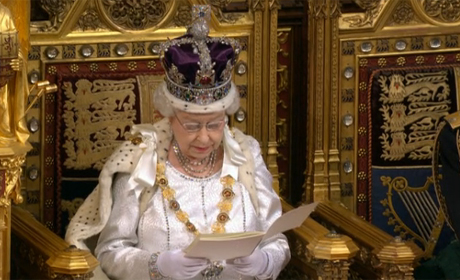
The Libel Reform Campaign announced a “victory” today as the Queen’s Speech confirmed legislation will be introduced in the next 12 months to reform defamation law.
The campaign issued a number of comments from those involved in the campaign, some of which are listed below:
Tracey Brown, managing director, Sense About Science:
We and thousands of others have campaigned to stop the libel laws’ bullying and chilling effects on discussions about health, scientific research, consumer safety, history and human rights. We are really pleased to see the government has moved closer to honouring its promise of a fairer law and protection of free speech in today’s Queen’s Speech. This opens the way to developing a law guided by public interest not powerful interests.
Simon Singh, defendant in British Chiropractic Association v Singh:
I continue to be contacted by journalists, scientists and others who are being silenced by libel threats or libel claims. The reform promised in the Queen’s speech today is a welcome response to the intolerable effects of the current laws. I hope that the government will now move rapidly to bring forward a bill that protects those writing about serious matters in the public interest.
Jo Glanville, editor, Index on Censorship:
We have now have a chance for libel legislation that’s fit for the 21st century. The introduction of the single publication rule and greater protection for internet service providers will help to put an end to the chilling effect online.
Justine Roberts, co-founder and CEO, Mumsnet:
While the draft Defamation Bill was a very good start, it didn’t go far enough to protect freedom of expression, particularly in the online environment. Websites and hosts of user-generated comment risk becoming tactical targets for those who wish to clamp down on criticism or investigation of their activities.
Philip Campbell PhD, editor-in-chief, Nature:
It is essential to the public trust in science that scientific integrity is upheld and that bad behaviour is brought to light. It is therefore imperative that libel legislation be revised to achieve a better balance of interests between those accused of misconduct and those who should be better able to write about them.
Hardeep Singh, journalist and libel defendant:
The inclusion of the defamation bill in the Queen’s Speech marks a major milestone for The Libel Reform Campaign. It can’t be right that ordinary people risk their livelihoods when getting caught up in costly libel proceedings.
The government has already investigated ways to weed out unmeritorious claims, whereby claimants will have to show serious harm before a case progresses. If passed by Parliament, these types of amendments will not only make our libel laws fairer, but go some way in restoring London’s reputation from being a ‘town called sue’.
Till Sommer, Internet Service Providers Association:
ISPA welcomes the Government’s commitment to libel reform. The current regulatory framework has failed to provide clarity to hosting and Internet service providers and has ultimately has had a chilling effect on freedom of speech online. We hope that Parliament will address the current shortcomings in the upcoming session and we will follow the political process closely to ensure that the reforms strike the best possible compromise between protecting providers, claimants and authors.







